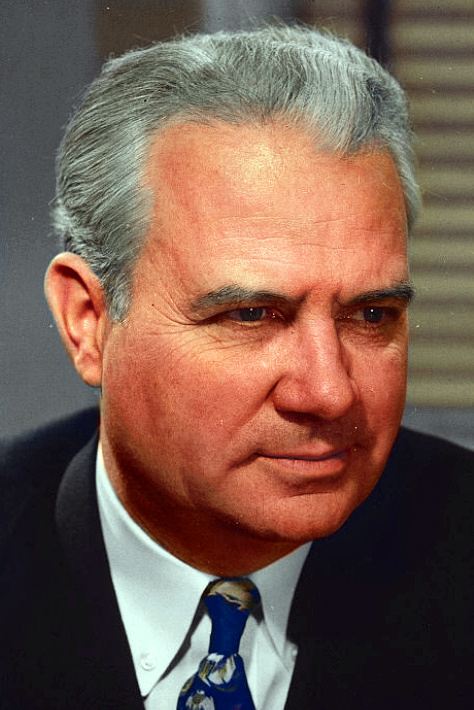
Bricker speaks here tomorrow
He will address veterans at William Penn

Ohio Governor Bricker
Governor John W. Bricker, the only announced candidate for the Republican nomination for President, will arrive in Pittsburgh tomorrow morning.
Governor Bricker, the first Republican in the history of Ohio to be elected governor for three consecutive terms, will be the main speaker at the annual McKinley Day banquet to be held at 7:00 p.m. ET in the William Penn Hotel. The banquet is under the sponsorship of the United Spanish War Veterans.
In appearing here, Governor Bricker will be making his initial appearance in Pennsylvania since he announced his candidacy. He recently returned to Ohio from a tour of Kansas, Texas and Oklahoma.
Accompanying Governor Bricker will be John W. Galbreath (campaign director and treasurer), Robert L. Barton (the Governor’s secretary) and Jack Flanagan (press secretary).
Others who will speak at the banquet include Guy V. Boyle of Indianapolis (the veterans’ commander-in-chief), Mrs. Hettie B. Trazenfeld of Philadelphia (national president of the Women’s Auxiliary), Department Commander Dr. Charles I. Shaeffer, and Mrs. Helen R. Hawk (auxiliary department president).